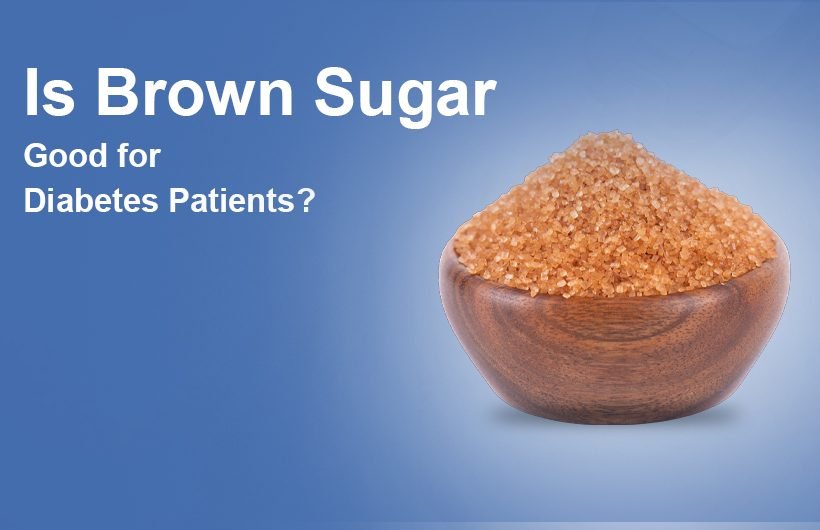Managing diabetes requires careful attention to diet, especially sugar intake. While natural sweeteners and alternatives are often discussed, brown sugar sometimes comes up as a perceived “healthier” option than white sugar. It is time to find out if brown sugar is better than white sugar and how it affects the level of glucose in your blood.
What is Brown Sugar?
Brown Sugar Is sugar that has been obtained by clarifying the raw sugar juice and is also referred to as brown sugar which is an additive of molasses to the regular white sugar. The mineral content of trace includes calcium, potassium and iron which are present in brown sugar due to the presence of molasses while white sugar does not contain these elements at all.
This is marketed mainly as natural or less processed sugar to give people the impression that it’s healthier. However, this consideration influences whether it makes a lot of difference to people with diabetes.
Is brown sugar better than white sugar?
Brown sugar is often considered a slightly healthier option than white sugar, but the difference is minimal. Here’s why:
- Processing: Brown sugar is less processed than white sugar, as it retains some molasses, which gives it its color and slightly richer flavour. This molasses provides small amounts of minerals like calcium, iron, and potassium, but the quantity is so low that it doesn’t significantly impact health.
- Calories and Carbs: Both brown and white sugar have similar calorie counts and carbohydrate content, so neither is much better for weight management or overall health.
- Glycemic Index: Brown sugar has a slightly lower glycemic index than white sugar, meaning it may cause a slower rise in blood sugar. However, the difference is very small, so it doesn’t have a significant effect on blood sugar levels.
Overall, both brown and white sugar should be consumed in moderation, as they both can contribute to health issues like weight gain, diabetes, and heart disease if eaten in excess.
Nutritional Comparison: Brown Sugar vs. White Sugar
Brown Sugar (1 teaspoon)
- Calories: About 17 calories
- Carbohydrates: 4.5 grams
- Sugars: 4.5 grams
- Minerals: Small amounts of calcium, iron, potassium, and magnesium (due to molasses)
White Sugar (1 teaspoon)
- Calories: About 16 calories
- Carbohydrates: 4 grams
- Sugars: 4 grams
- Minerals: None (it’s highly refined)
Key Differences:
- Minerals: Brown sugar contains trace amounts of minerals from molasses, while white sugar has no minerals.
- Calories: Brown sugar has a tiny bit more calories than white sugar, but the difference is very small.
- Carbs/Sugar: Both have nearly the same amount of carbs and sugar, so there’s no significant difference in their impact on blood sugar.
While brown sugar has some added minerals, the differences between brown and white sugar are minimal in terms of nutrition. Both should be consumed in moderation for a balanced diet.
Impact on Blood Sugar Levels
For people with diabetes, the primary concern is how food affects blood sugar levels. Both brown and white sugar have a similar glycemic index (GI) of around 65, categorizing them as high-GI foods. High-GI foods cause rapid spikes in blood glucose levels, which can be challenging to manage for diabetics.
Consuming brown sugar in moderation won’t drastically harm blood sugar levels, but it’s not a “safe” alternative either. The American Diabetes Association (ADA) recommends limiting the intake of all added sugars, including brown sugar, to prevent blood sugar fluctuations and reduce the risk of complications.
Brown Sugar vs. White Sugar for Diabetics: Final Verdict
For people with diabetes, both brown and white sugar should be eaten in small amounts. Here’s what you need to know:
- Glycemic Index: Brown sugar has a slightly lower glycemic index (GI) than white sugar, meaning it may raise blood sugar a bit slower. But the difference is very small and doesn’t make brown sugar a better choice for diabetics.
- Nutritional Value: Brown sugar has a tiny bit of minerals because of molasses, but it’s not enough to make a big difference in managing diabetes.
- Blood Sugar Levels: Both brown and white sugar can cause a rise in blood sugar, so it’s best to limit how much you eat of both.
Final Verdict:
Neither brown nor white sugar is ideal for diabetics. It’s better to keep sugar intake low and consider alternatives like stevia or monk fruit. Always talk to a doctor or nutritionist for the best advice on managing diabetes.
Consult a Specialist
Diabetes requires individualized instruction in compliance with the subject’s state of health. To get professional advice on the right diet plan and diabetes, you can refer to Dr Moxit Shah – a prominent Diabetes Specialist in Ahmedabad. Always be advised by a professional when making those life-altering choices and put your health first.
Conclusion
It has been noted that brown sugar is not healthier than white treacle for diabetics. It does provide some trace nutrients but otherwise has a hard impact on blood sugar levels – almost as much as the drink. Diabetes is effectively exercised through moderation and moderation in the use of foods that are sweet, creamy or contain carbohydrates. Choose an alternative that is as low on the GI as possible and consult with healthcare workers for an individual plan for diabetes management.






